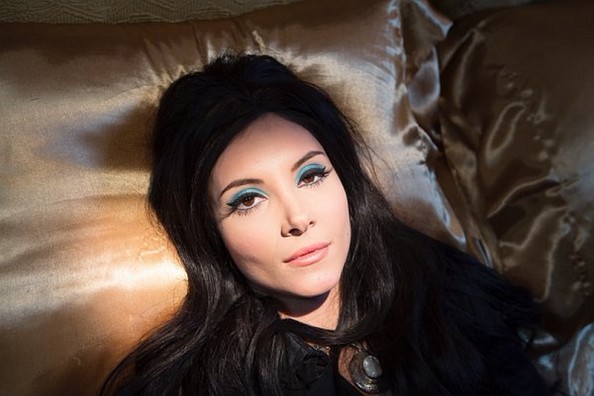
Horror Channel FrightFest 2016
25-29 August 2016
Vue Shepherd’s Bush, London
FrightFest website
The festival opened with the poetic and brutal Southern Gothic tale My Father Die, kicking off a father-child theme that bookended the festival, being also the focus of closing film Train to Busan. Although director Sean Brosnan went somewhat overboard with the Gothicness, My Father Die compellingly tells the tale of Asher, a deaf young man traumatised by the events of his childhood, who must fight off the ogre-like figure of his monstrous father (the child-eating Titan Kronos, father of Zeus, is referenced at the beginning).
At the other end of the festival, and in a completely different genre, Korean zombie action film Train to Busan was concerned with a career-obsessed father and his unhappy little girl. Representing everything that is wrong with capitalist big business, the father is forced to reassess his ruthless, selfish principles as the passengers of the train they are travelling in become infected with a virus that turns them into rabid zombies. The father-daughter relationship provides the emotional core of this efficient action horror film, but develops in a way that is far too sentimental. Surprisingly, this big Korean box-office success was directed by Yeon Sang-ho, who gave us one of the harshest, most harrowing films of recent years, high school animé The King of Pigs, which, although it centred on young boys, had not one ounce of sentimentality about it. Yeon Sang-ho also made another zombie film this year, this one in animation form, Seoul Station, which sounds closer to The King of Pigs in its themes and approach than Train to Busan.
Parental anxiety dominated the festival, with mothers taking centre stage in the disappointing Argentine thriller White Coffin (particularly marred by its puzzlingly ill-judged sound design), the atmospheric Danish pregnancy horror Shelley, and the excellent Iranian tale of evil Under the Shadow, which mixed political and otherworldly terrors in a tightly wound-up and emotionally charged feminist drama. A different type of feminist enquiry was found in The Love Witch, in which director Anna Biller plays the title character, who has fashioned herself into what men want using magic in order to find love. The film is a gorgeous-looking, meticulously designed throwback to 1960s cinema that revisits that period from a female angle, but its extremely self-conscious approach does not produce any truly challenging or fresh commentary on sexual politics.
From families to houses: another theme that emerged from this year’s festival was the mazes of the mind, with Laura Casabé’s convoluted plunge into the artistic mind Benavidez’s Case, Darren Lynn Bousman’s Abattoir and French TV mini-series Beyond the Walls. In Abattoir, a journalist begins to investigate when whole rooms where crimes have been committed are removed from houses recently purchased. The premise was very appealing, the idea of mixing up eras was nicely disorientating, but the hotch-potch of ingredients failed to cohere into a meaningful whole and the acting and direction had that lifeless, sanitized slickness that has become typical of American horror productions these days. By contrast, Beyond the Walls intelligently constructed an oppressive labyrinthine architecture of the mind that worked both as a psychological space and as a nightmarish world of dread.
Other types of confined spaces explored transgressive relationships, as in American psychological thriller Pet and psychedelic Mexican delirium We Are the Flesh. Pet had the merit to try to do something different but that was also the problem: it tried too hard and some of the twists in plot and characterisation were too self-consciously contrived. At the other end of the scale, Emiliano Rocha Minter’s debut, while inspired by literary masters of transgression, was made with the guts and delivered an intensely visceral punch that few films can equal. It was by far the most accomplished, imaginative, coherent and radical film of the festival.
Virginie Sélavy
